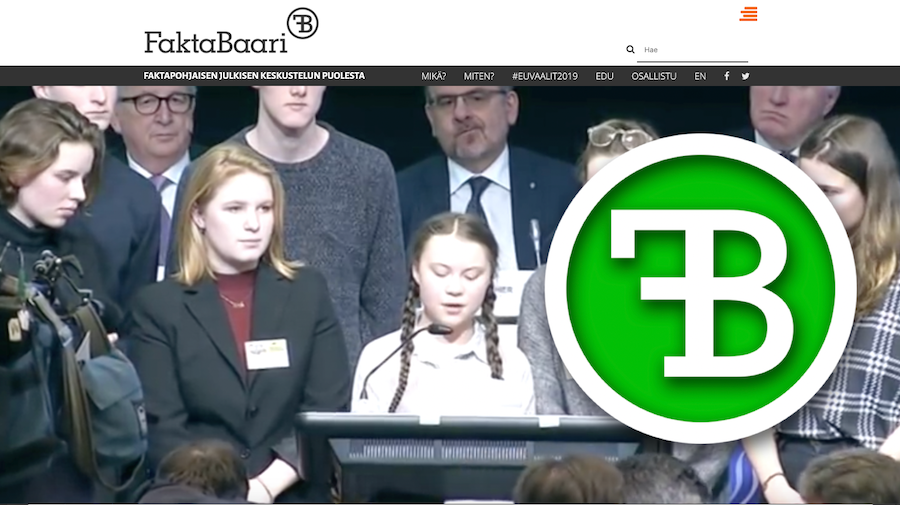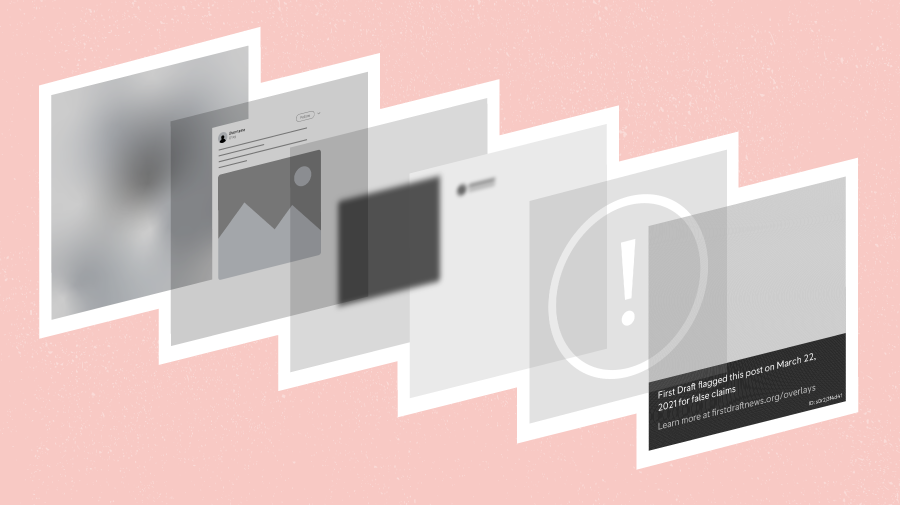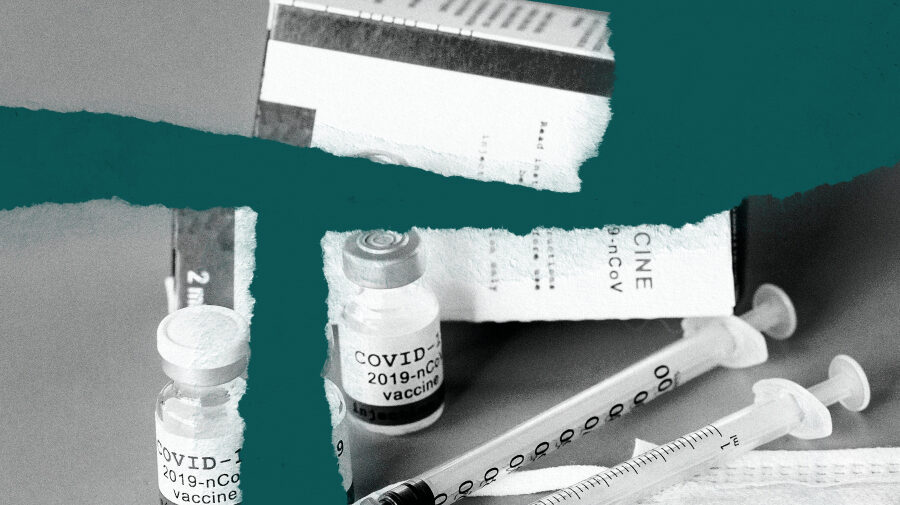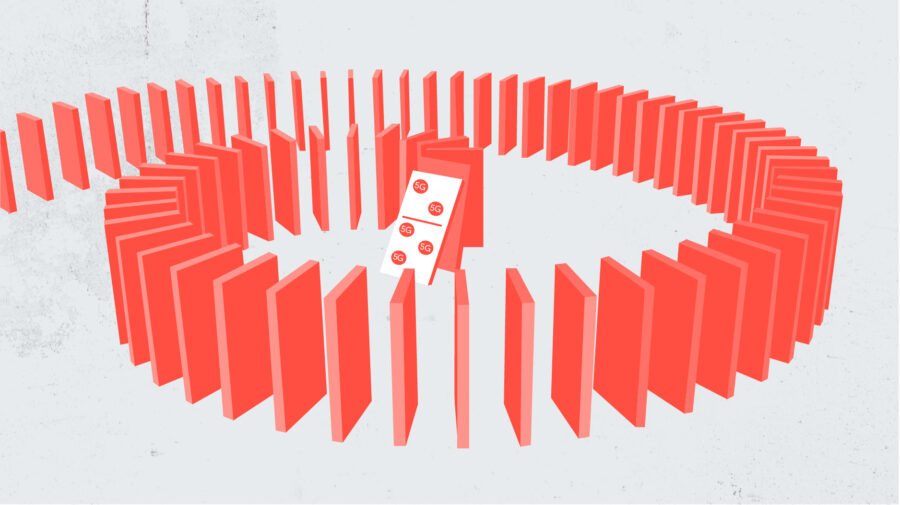When Petra Piitulainen-Ramsay started working as editor of Faktabaari, it was one of the only fact-checking organisations in Finland working to prevent the spread of misinformation in the country.
Faktabaari, founded in 2014, focuses on bringing accuracy to public debates around elections. It is still a small organisation, with a part-time staff working remotely from home. But as the need for its work is increasing in Finland, it is hoping to expand its work and open its first office in Helsinki soon.
First Draft spoke with Petra Piitulainen-Ramsay about her work with CrossCheck Europe during the May 2019 European parliamentary elections and how fact checkers in Finland deal with mis- and disinformation.
First Draft: How did you first get involved in fact checking?
Petra Piitulainen-Ramsay: I have had other careers before I became a journalist. Then I started working in an economic magazine, and I had fact-checking training in 2015. In that year, we had parliamentary elections in Finland and I was involved in fact checking [them]. Since then, I became an active member of Faktabaari and a journalist who is interested in fact checking and in all the new disinformation challenges.
How does Faktabaari work exactly?
Currently we are a small organisation and we don’t have permanent staff. We have about four active members, mainly volunteering and working in other jobs. We are mostly active during the elections, but we are trying to change this and we want to operate full time, all year. We are trying to get funding and resources to get an office, hopefully in August.
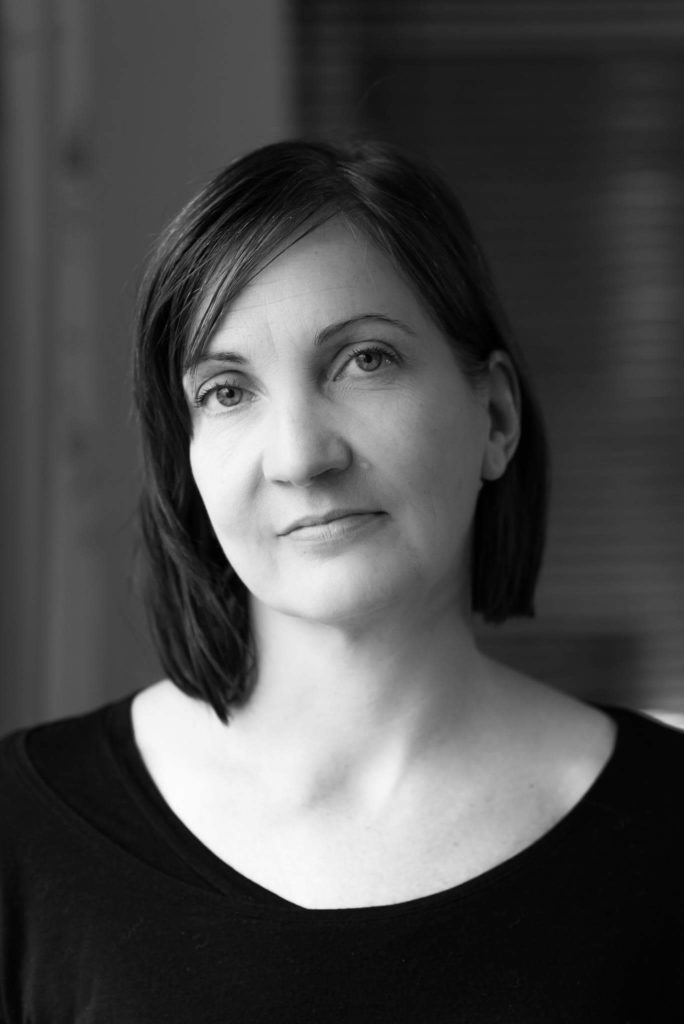
Petra Piitulainen-Ramsay is a editor-in-chief of Finnish fact-checking service Faktabaari, established in 2014 to to promote fact-based public debate in Finland. Image: Courtesy Petra Piitulainen-Ramsay
How would you describe your work during the 2019 European elections campaign?
Our election season began at the beginning of the year, organising trainings in schools and universities. In Finland, disinformation is something that teachers are not familiar with and they don’t have many tools, so we tried to help them with that [by] organising talks in seven schools. Then we started training funders, NGOs and associations. We participated in five cities as part of the parliamentary election debate tour in Finland, moderating what the candidates were talking about and fact checking what they were saying.
What was your fact checking workflow during the elections?
I was following social media accounts and pages, as well as blogs and websites on CrowdTangle and Trendolizer. I manually gathered the lists of sources [and] when I noticed something rubbish being shared, I analysed what they have been liking and following, collecting those sources.
“I am interested not only in debunking, but in studying the structure behind the spread of disinformation.”
That’s how I created the base. We haven’t been doing [this] in a very systematic way, because the political fact checking took us a lot of time, but we will do that in the future.
Once we gathered information and materials, we interviewed at least two experts to provide more background information, so anyone can check the original sources.
What were the specific information disorder trends in Finland during the EU elections and how do the trends compare to other countries?
Nobody has done systematic disinformation research in Finland yet, so no one really knows. What I noticed is that we have the same threats circulating around Europe and on a global scale. These movements are quite small in Finland and they have a minimum level of resources, so they are clearly part of broader European networks. I am not sure if they are actively producing stuff or just following and reposting what others have created.
Migration is a big topic and climate change has become one of the biggest topics too. But because of our limited resources we couldn’t do as much as we wanted to. And there’s so much to do, the elections are not the only moment to take care of.
During the European election campaign, you started an investigation within CrossCheck about a Finnish post claiming that prepaid Mastercards have been given to over 2 million migrants. The post built off of previously debunked claims. How did you find it and what prompted the investigation?
I found it on Trendolizer in the two weeks that preceded the parliamentary elections. It attracted my attention not because of the number of reactions, but because it was posted by a publication related to the Finnish populist party True Finns, and that was very alarming.
So I thought to check if [it was a] typical example of stories going on in Europe. Have they created this story by themselves or have they taken it from somewhere else? These were the questions that made me share the story. I am interested not only in debunking, but in studying the structure behind the spread of disinformation.
What are some of the specific tactics and trends of information disorder in Finland?
We don’t actually know how the situation is. We think that it is not that alarming, but no one can really tell. That’s why I wanted to start doing this. We need to know more about the networks behind disinformation and the [number] of accounts sharing suspicious material.
Also, the impact of disinformation on Finnish public is hard to say. We don’t know how much disinformation [there] is in general. It’s really hard to make an estimation. I feel that it is having an impact, but it’s just a feeling based on the fact that populist parties are increasingly popular.
Can you tell me about an example that you found during the last European campaigns.
One interesting example was the True Finns populist party promoting a video advert for the EU election. It was a horror story of what it could happen if the EU would have taken over in a dystopian future… [It showed] claims that have already been debunked in the past, reused with the sole purpose of scaring people. They said it was satire, but we felt it was not ok to publish something and then say it’s ‘just a joke’. We debunked [the video] explaining why that was dangerous. We have this strong media literacy aspect in our work, so we used it.
“So in all aspects of journalism, it is very important to collaborate internationally.”
How important are collaborative projects for an organisation like yours?
It’s very important to have the opportunity to collaborate, especially for smaller newsrooms like ours that can’t have a big impact otherwise and can’t be that influential. Also, it is important to share material and save resources to avoid duplication of work. So in all aspects of journalism, it is very important to collaborate internationally.
What was the hardest challenge during the recent election campaign?
We didn’t have any dramatic moments here as it may have happened in other countries. In Finland, politicians and the media are still quite polite. The most difficult thing is the practical frustration of lacking resources to do what you want. I realised there’s so much to do. The field is so wide, and we need to do more. That’s why CrossCheck is a very good project: it’s not just about sharing your work, but you could actually learn more and gain resources. We are starting from zero [in our CrossCheck collaboration], and that could help.
This interview has been edited and condensed for clarity. Clarification: This article has been updated to clarify Piitulainen-Ramsay’s statement that Faktabaari was beginning its CrossCheck involvement from the ground up.
To stay informed, become a First Draft subscriber and follow us on Facebook and Twitter.



